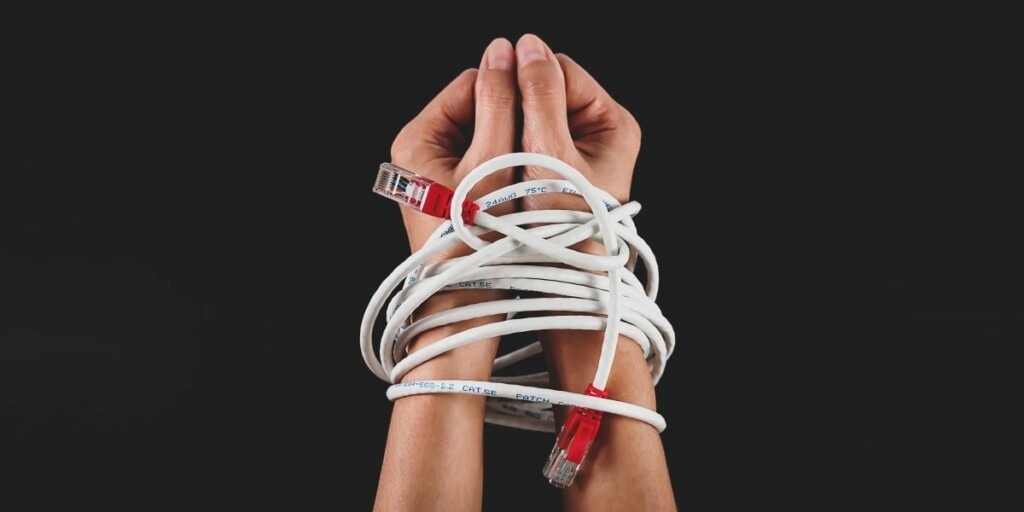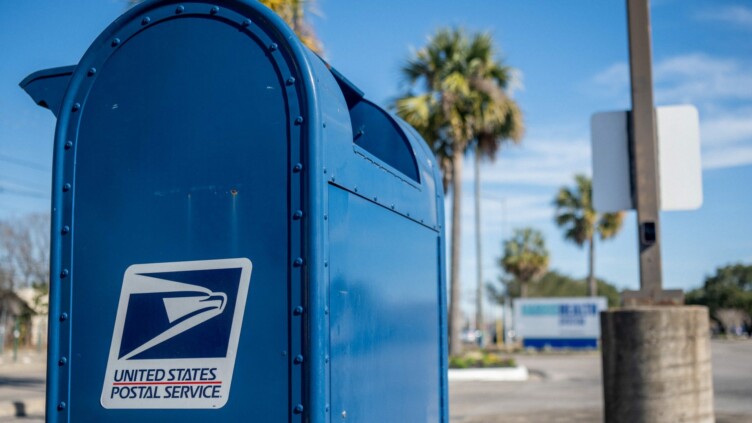The Mail Is No Longer Safe In The United States
By SCARS Editorial Team – Society of Citizens Against Relationship Scams Inc.
The Mail & the Post Office has been a Disaster For Decades
The U.S. Postal Service does a great job with the mail, and has great people doing a hard job! But this appears to be a losing battle!
The simple fact is that the mail does not always go through. If it did then there would be no FedEx, DHS, or UPS. Those companies were the response to a real problem of USPS reliability and performance. After all who pays much higher prices for service if the government service is reliable and safe?
Now we have arrived at a point that is no longer reliable, that the United States Mail is highly vulnerable.
It may not be safe to mail checks anymore. U.S. Postal Service shares tips to fight the rise in crime.
According to USA Today:
More than 300 mail carriers were robbed from Oct. 1, 2022 to March 31, 2023, a higher rate than the previous year, the U.S. Postal Service says. Mail thefts are on the rise, too, with more than 25,000 cases from Oct. 1, 2022 to March 31, 2023, the USPS says. The Postal Service is taking steps to combat crime, but some experts say more needs to be done and that consumers should be careful in mailing personal checks.
Neither snow nor rain nor heat nor gloom of night, the adage goes, will stop postal workers from delivering the mail. But what about armed robbery?
The U.S. Postal Service is taking steps to tamp down an increase in robberies of mail carriers and in mail theft, both of which have contributed to a rise in check fraud. While the U.S. Postal Service has not officially warned customers about putting personal checks in the mail, some experts are suggesting folks use caution when sending checks.
“Where it’s possible to pay things through online means, that’s definitely something to consider, it may be more secure to pay through online,” Chuck Bell, programs director, advocacy, for Consumer Reports, told USA TODAY. “I mean there’s problems with that as well, but you would avoid the risk of having the check intercepted and cashed by someone else.”
Between Oct. 1, 2021 and Sept. 30, 2022 (the USPS 2022 fiscal year), 412 letter carriers were robbed while on duty. That has increased to 305 incidents from Oct. 1, 2022 to March 31, 2023 (the first half of the current fiscal year), the USPS said in May.
Mail thefts of high volume, including from blue collection boxes, rose from 38,500 in fiscal year 2022 to more than 25,000 in the first half of FY23, the USPS said.
“The Postal Service and Postal Inspection Service have seen an increase in robberies of letter carriers and mail theft, as crime has risen across the country,” said Michael Martel, U.S. postal inspector and national public information officer for the U.S. Postal Inspection Service, in a statement to USA TODAY. The Postal Inspection Service (USPIS) is the law enforcement, crime prevention, and security arm of the Postal Service.
What this is Telling Us?
Not only is the Mail no longer safe for checks, it is no longer safe for ANYTHING IMPORTANT!
Of course, the USPS has not said that mailing a check will no longer be secure. However, the USPS has acknowledged that there has been an increase in mail theft in recent years. This is due to a number of factors, including the rise of online shopping and the increasing value of checks.
The USPS says it is taking steps to address this problem, including installing new security features at post offices and training postal employees on how to spot and prevent mail theft. However, there is no way to guarantee that a check will not be stolen if it is mailed.
But in reality, this is the captain of the Titanic saying everything is fine after it hit the iceberg! Without security, the whole system is just for junk mail. If we can no longer trust that our mail will get through it spells the end of a service that the world still depends on.
There was a time when mail carriers carried weapons when the country was a much more lawless place. Are we back there again? We may be!
When the Mail Man carried a Gun!
Postal workers in the United States have carried guns in the past, but they are no longer allowed to do so. The practice of postal workers carrying guns began in the late 1800s when mail carriers were often the target of robberies. In 1892, the Post Office Department issued a regulation allowing postal workers to carry guns, and by the early 1900s, most postal workers were armed.
However, the practice of postal workers carrying guns came to an end in the 1960s. In 1961, a postal worker in Los Angeles was killed by a mail robber, and this event led to a public outcry against postal workers carrying guns. In 1962, the Post Office Department banned postal workers from carrying guns, and this ban has remained in effect ever since.
If armored car guards carry weapons to protect money deliveries, shouldn’t we allow postal carriers to do the same?
Avoid Using the Mail!
The U.S. Postal Service now says we should not use the mail if we do not have to!
They say that if you are concerned about the security of your checks, there are a few things you can do to protect them:
- Use a secure mailbox. A secure mailbox is one that is difficult to break into. You can purchase a secure mailbox from a home improvement store or online. But what good is this if thieves steal the mail from the carriers themselves?
- Mail your checks in a well-sealed envelope. This will help to prevent the check from being tampered with.
- Do not write your check in plain sight. If you must write your check in public, be sure to do so in a way that no one can see your account number or routing number.
- Mail your check by certified mail. Certified mail provides tracking and proof of delivery.
None of these provide security in the present crisis!
Here are some other alternatives to mailing checks:
- Pay online. Many businesses and organizations now allow you to pay online. This is a secure way to pay, and it can save you time and money.
- Pay by phone. You can also pay by phone in some cases. This is a convenient way to pay, but it is not as secure as paying online.
- Pay in person. You can also pay in person at a bank or other financial institution. This is the most secure way to pay, but it may not be the most convenient.
Ultimately, the best way to protect your checks is to not write them and use alternative services and pay online!
The New Flood of Check Fraud!
Check fraud is a type of financial fraud that involves the use of checks to steal money.
It is a serious problem that has been on the rise in recent years with the rapid increase in mail delivery theft. In 2022, there were over $10 billion in losses due to check fraud.
There are a number of reasons why check fraud is on the rise. One reason is the increasing use of checks. Checks are still a popular way to pay for goods and services, and they are also a common way to receive payments. This makes them an easy target for fraudsters.
Another reason for the rise in check fraud is the increasing sophistication of fraudsters. Fraudsters are using new techniques to steal money, such as counterfeiting checks and washing checks.
- Counterfeiting checks involve creating fake checks that look like real checks.
- Washing checks involves altering the information on a check to make it look like it was written by someone else.
The rise in check fraud is a catastrophic problem that is having a significant impact on individuals and businesses.
Because of this, there are a number of technology-based solutions that claim that they can help to prevent check fraud. These solutions include:
- Check verification services. These services can help to verify the authenticity of checks before they are deposited.
- Check imaging and tracking systems. These systems can help to track checks as they move through the banking system.
- Fraud detection software. This software can help to identi Save fy suspicious transactions.
But the reality is they have not stopped check fraud. They may have reduced it, but with check fraud on the rise, obviously, the criminals are ahead of the defenders.
More ScamsNOW.com Articles
-/ 30 /-
What do you think about this?
Please share your thoughts in a comment below!
SCARS LINKS: AgainstScams.org RomanceScamsNOW.com ContraEstafas.org ScammerPhotos.com Anyscam.com ScamsNOW.com
reporting.AgainstScams.org support.AgainstScams.org membership.AgainstScams.org donate.AgainstScams.org shop.AgainstScams.org
youtube.AgainstScams.org linkedin.AgainstScams.org facebook.AgainstScams.org
TABLE OF CONTENTS
CATEGORIES
![NavyLogo@4x-81[1] The Mail Is No Longer Safe In The United States](https://scamsnow.com/wp-content/uploads/2025/04/NavyLogo@4x-811.png)
ARTICLE META
Important Information for New Scam Victims
- Please visit www.ScamVictimsSupport.org – a SCARS Website for New Scam Victims & Sextortion Victims.
- SCARS Institute now offers its free, safe, and private Scam Survivor’s Support Community at www.SCARScommunity.org – this is not on a social media platform, it is our own safe & secure platform created by the SCARS Institute especially for scam victims & survivors.
- SCARS Institute now offers a free recovery learning program at www.SCARSeducation.org.
- Please visit www.ScamPsychology.org – to more fully understand the psychological concepts involved in scams and scam victim recovery.
If you are looking for local trauma counselors, please visit counseling.AgainstScams.org
If you need to speak with someone now, you can dial 988 or find phone numbers for crisis hotlines all around the world here: www.opencounseling.com/suicide-hotlines
Statement About Victim Blaming
Some of our articles discuss various aspects of victims. This is both about better understanding victims (the science of victimology) and their behaviors and psychology. This helps us to educate victims/survivors about why these crimes happened and not to blame themselves, better develop recovery programs, and help victims avoid scams in the future. At times, this may sound like blaming the victim, but it does not blame scam victims; we are simply explaining the hows and whys of the experience victims have.
These articles, about the Psychology of Scams or Victim Psychology – meaning that all humans have psychological or cognitive characteristics in common that can either be exploited or work against us – help us all to understand the unique challenges victims face before, during, and after scams, fraud, or cybercrimes. These sometimes talk about some of the vulnerabilities the scammers exploit. Victims rarely have control of them or are even aware of them, until something like a scam happens, and then they can learn how their mind works and how to overcome these mechanisms.
Articles like these help victims and others understand these processes and how to help prevent them from being exploited again or to help them recover more easily by understanding their post-scam behaviors. Learn more about the Psychology of Scams at www.ScamPsychology.org
SCARS INSTITUTE RESOURCES:
If You Have Been Victimized By A Scam Or Cybercrime
♦ If you are a victim of scams, go to www.ScamVictimsSupport.org for real knowledge and help
♦ SCARS Institute now offers its free, safe, and private Scam Survivor’s Support Community at www.SCARScommunity.org/register – this is not on a social media platform, it is our own safe & secure platform created by the SCARS Institute especially for scam victims & survivors.
♦ Enroll in SCARS Scam Survivor’s School now at www.SCARSeducation.org
♦ To report criminals, visit https://reporting.AgainstScams.org – we will NEVER give your data to money recovery companies like some do!
♦ Follow us and find our podcasts, webinars, and helpful videos on YouTube: https://www.youtube.com/@RomancescamsNowcom
♦ Learn about the Psychology of Scams at www.ScamPsychology.org
♦ Dig deeper into the reality of scams, fraud, and cybercrime at www.ScamsNOW.com and www.RomanceScamsNOW.com
♦ Scam Survivor’s Stories: www.ScamSurvivorStories.org
♦ For Scam Victim Advocates visit www.ScamVictimsAdvocates.org
♦ See more scammer photos on www.ScammerPhotos.com
You can also find the SCARS Institute’s knowledge and information on Facebook, Instagram, X, LinkedIn, and TruthSocial
Psychology Disclaimer:
All articles about psychology and the human brain on this website are for information & education only
The information provided in this and other SCARS articles are intended for educational and self-help purposes only and should not be construed as a substitute for professional therapy or counseling.
Note about Mindfulness: Mindfulness practices have the potential to create psychological distress for some individuals. Please consult a mental health professional or experienced meditation instructor for guidance should you encounter difficulties.
While any self-help techniques outlined herein may be beneficial for scam victims seeking to recover from their experience and move towards recovery, it is important to consult with a qualified mental health professional before initiating any course of action. Each individual’s experience and needs are unique, and what works for one person may not be suitable for another.
Additionally, any approach may not be appropriate for individuals with certain pre-existing mental health conditions or trauma histories. It is advisable to seek guidance from a licensed therapist or counselor who can provide personalized support, guidance, and treatment tailored to your specific needs.
If you are experiencing significant distress or emotional difficulties related to a scam or other traumatic event, please consult your doctor or mental health provider for appropriate care and support.
Also read our SCARS Institute Statement about Professional Care for Scam Victims – click here
If you are in crisis, feeling desperate, or in despair, please call 988 or your local crisis hotline – international numbers here.
More ScamsNOW.com Articles
A Question of Trust
At the SCARS Institute, we invite you to do your own research on the topics we speak about and publish. Our team investigates the subject being discussed, especially when it comes to understanding the scam victims-survivors’ experience. You can do Google searches, but in many cases, you will have to wade through scientific papers and studies. However, remember that biases and perspectives matter and influence the outcome. Regardless, we encourage you to explore these topics as thoroughly as you can for your own awareness.


























![scars-institute[1] The Mail Is No Longer Safe In The United States](https://scamsnow.com/wp-content/uploads/2025/04/scars-institute1.png)

![niprc1.png1_-150×1501-1[1] The Mail Is No Longer Safe In The United States](https://scamsnow.com/wp-content/uploads/2025/04/niprc1.png1_-150x1501-11.webp)